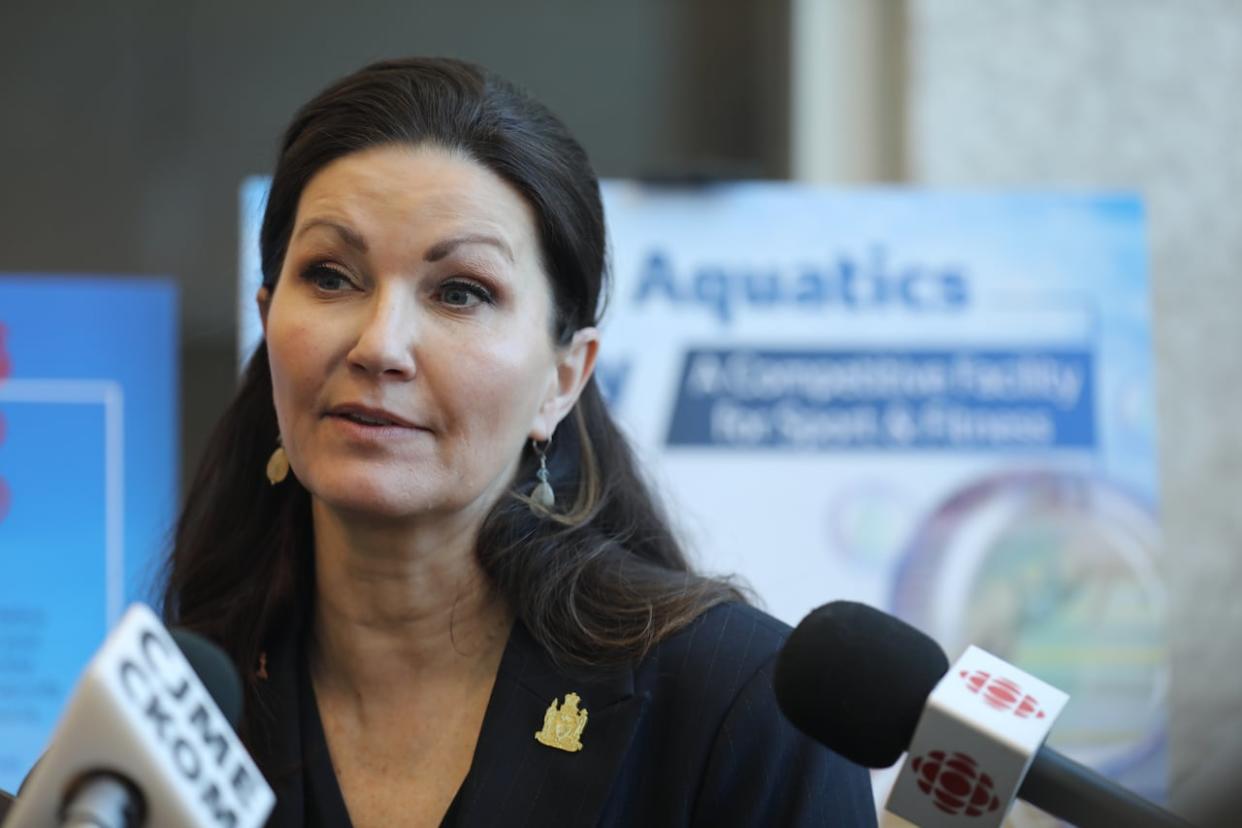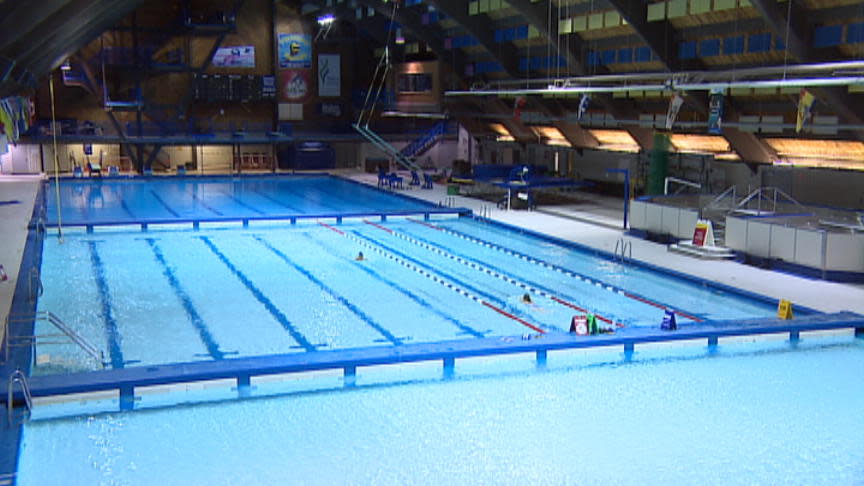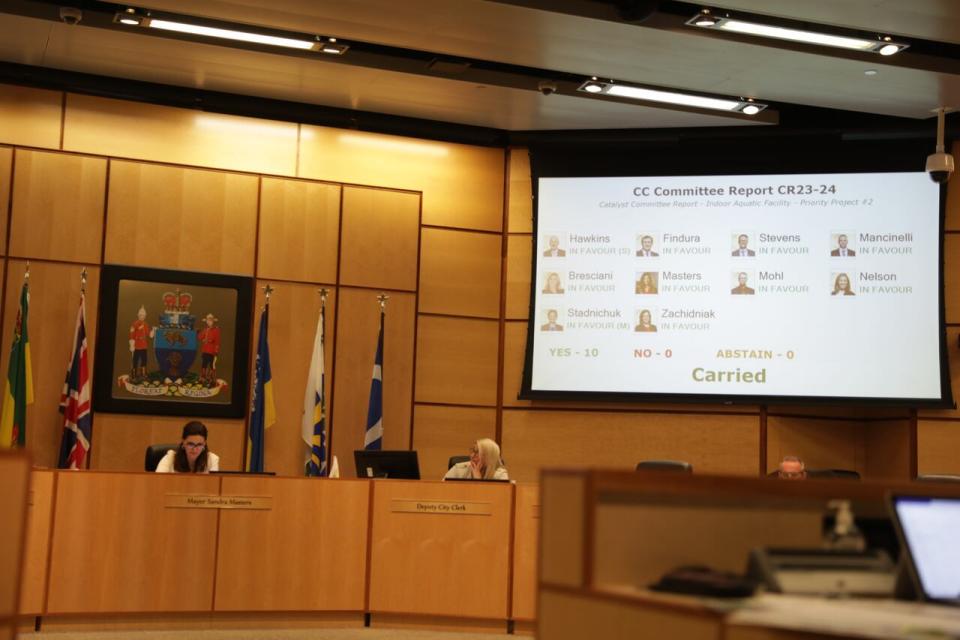Regina's new aquatic centre will get $128M in funding from federal, provincial, city governments

Regina announced Thursday that federal funding has come through for a new aquatic facility.
In March 2023, Regina city council voted to go ahead with construction of a new geothermal-heated indoor aquatic centre to replace the aging Lawson facility, which was built in 1975.
In a news release on Thursday morning, Regina Mayor Sandra Masters made the funding announcement along with provincial Minister of Government Relations Don McMorris and Sean Fraser, the federal minister for housing, infrastructure and communities.
The federal, provincial and municipal governments combined will spend more than $128 million on the facility as a part of the Investing in Canada Infrastructure Program.
That federal program's funding is cost-shared, with up to 40 per cent of the total coming from the federal government. A minimum of one-third of the project costs has to come from the provincial government under the program, with the remainder from the municipal government.

The Lawson Aquatic Centre, shown here, was built in 1975. It has about five to seven years of life left in it, Masters said. (CBC)
During a funding announcement held at the University of Regina alongside Premier Scott Moe, Masters said city council estimated the cost of a new aquatic centre back in 2021 to be $180 million.
"We know that costs continue to escalate, so we may have some cost updates to that," said Masters when speaking to reporters after the announcement.
"I suspect given that it will be a 50-year asset that we will take out debt in order to complete the project in its entirety."
No official timeline for construction
The new facility will meet national competition standards, but will also have "significant" leisure components and community spaces, and be inclusive and accessible, according to Thursday's news release.
Masters said there will be two 50-metre tanks and significant space for spectators, which will help with hosting events.
The city estimates the new aquatic building will be larger than the older Lawson facility, and expects about 600,000 swim visits per year compared to the 170,000 Lawson currently gets.
As for location, Masters said it will be built on the land that used to house Taylor Field, which is right behind the Lawson facility.
Masters didn't have an exact start date for construction on the project.
"I think May is a great time, but I'm not going to get my way. They're going to go into more community engagement," she said.
Engineering and design work also still needs to be done, said Masters.
She added the Lawson facility has about five to seven years of life left in it, but the city's goal is to open the new aquatic centre "as fast as possible."
Geothermal heating
A portion of the funding will go toward building a "deep geothermal heating facility" that will heat the new building.
During a 2023 council meeting on the aquatic centre and geothermal component, city administration said the use of the geothermal system will help to get the facility to net-zero carbon emissions.

This photo is from March 2023, when Regina city council voted to move forward with a plan to construct a new aquatic centre in the city. (Alexander Quon/CBC)
Masters said at Thursday's announcement that about $280,000 has been spent on research and a feasibility study from the University of Regina and the Petroleum Technology Research Centre, a not-for-profit corporation focused on research into carbon-footprint reduction.
"When it [the research] came back and showed us what … that heat energy coming up could do for us in terms of long-term savings as well as reduction in emissions, it sold it," said Masters.
Ranjith Narayanasamy, CEO of the research centre, says the aquatic centre will use geothermal energy instead of natural gas to heat the building.
"Geothermal heating is where we are using the hot water from the subsurface to heat the facilities," said Narayanasamy.
Masters said solar panels and heat pumps could also be possible green additions for the new centre.
Fraser, the federal housing minister, said in Thursday's news release that his government is "proud to support projects that not only help communities accommodate their growth, but also reduce greenhouse gas emissions along the way."


